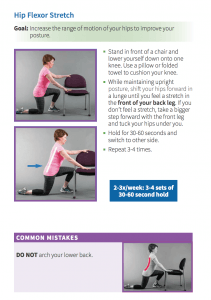Caregivers, or care partners, share so many of the struggles of Parkinson’s disease (PD) and are so vital in helping those with PD meet their challenges and live their best lives. Care partners are often the ones to notice when a symptom has changed, to cajole their partners to improve their lifestyles, to encourage their partners to follow doctor’s orders, to investigate the newest treatments – in short, to act as another set of eyes and ears along the PD journey. Not surprisingly therefore, care partners ask many of the questions sent to us by our readers. This week I will address some of these common questions. (If you have questions or a blog topic to suggest, let us know!)
Questions about diagnosis
- My 72-year old husband has the following symptoms: loss of smell, soft voice, and active dreams. Could this be Parkinson’s disease (PD)? When I try to discuss this with him, I am not able to convince him that he might have a medical problem.
You have noticed some symptoms that could suggest early PD. However, there may be other reasons for these symptoms, so I would not jump to conclusions. I understand that he may be generally resistant to seeing doctors and that is making it hard for you to do the next reasonable thing which would be to have him examined by a neurologist. I would be persistent and explain to him what is concerning you (without mentioning PD, since you really do not know yet that this is even a consideration). Hopefully, he will understand that you care about him and that is why you want him to see a neurologist. The sooner you learn what might be causing these symptoms, the sooner you can take steps to improve his situation.
- My husband has been diagnosed with PD recently but I am not sure he has it. Can PD be misdiagnosed and how do I question the doctor about the diagnosis?
I would certainly ask the diagnosing doctor to explain how he or she came to the conclusion that your husband has PD. He/she should be able to explain it to you and if he/she can’t, then it would make sense to seek a second opinion, preferably from a movement disorders physician who has particular training in PD and related disorders. Medications for PD can have side effects (although many people do not have any side effects) such as low blood pressure and hallucinations, in those who takes it, so I understand that you want to feel convinced that he needs it before he takes it.
Having said that, PD has very characteristic features that can be spotted by a trained eye. It is therefore certainly possible that you are just not seeing the things that your husband’s neurologist has spotted. That is why you need the neurologist to explain what it is that he/she has seen that raises suspicion for PD.
Questions about Parkinson’s symptoms
- My husband was diagnosed with PD ten years ago. I’ve noticed recently that his personality is changing and he can be angry and hostile at times. He was not like this before. He also does not want to participate in activities that he used to enjoy. Is this part of the disease?
It is possible that your husband is angry about his diagnosis, or has depression (which is often associated with PD) and this is affecting how he acts towards you. He may be very concerned and/or anxious about cognitive decline or hallucinations that he may be experiencing which may be contributing to his changed behavior. I would try to talk with him about these things to better understand what he is experiencing. Alternatively, he may be developing non-motor features of PD, such as apathy that is manifesting this way. Whatever the cause(s), his neurologist may be able to intervene to help improve his quality of life (and yours), so I would definitely talk with his doctor about it. A psychiatrist who has familiarity with PD may be helpful as well. Note: you should always mention changes in physical or mental symptoms to your medical team.
- My 96 year old father has had PD for the past 12 years. This week, he stopped walking, and he is sleeping much more. This change has been very drastic. Could his PD have advanced so quickly?
As a first step, I would have him seen by his primary care physician as soon as possible. Sudden/drastic changes in the condition of someone with PD and dementia, often means a medical illness of some sort, most commonly a urinary tract infection or other infection.
- My 82 year old mother has had PD for the past five years. She has recently developed hallucinations in which she sees people in her house. She knows these people aren’t really there, but they are very upsetting to her. Is there anything that can be done?
For some people, psychosis and hallucinations can unfortunately be a prominent feature of PD. The first thing to consider is whether there is a medical issue such as a urinary tract infection that can be contributing to hallucinations, so you should discuss this issue with her doctor. If that is not the case, her doctor may consider lowering the medications that she takes for PD as these can instigate or worsen hallucinations. Finally, if this is not possible, there are medications to add to control hallucinations. Bottom line – there are many things to try that may get hallucinations to a point that they are not interfering with her quality of life.
- My 72 year old husband has had PD for about six years. I know it is vital for him to exercise but it is very difficult to motivate him. When he does exercise, his
symptoms are better. What should I do?
Lack of motivation to exercise is extremely common in the general population and people with PD may demonstrate apathy, or a general lack of interest, as a non-motor feature of the disease, making motivation to exercise even more challenging.
However, regular exercise not only has been associated with better cognitive and motor function in PD, but many people feel that immediately after exercising, their symptoms are less intense and they move better. So keep encouraging him to move! It is crucial to living well with PD. APDA has an excellent publication entitled “Be Active and Beyond” that demonstrates exercises that can be done at home. Perhaps you (or someone else) can do these exercises with him. You can also consider hiring a trainer to work with your husband to help maintain motivation. We’ve got two great webinars archived on our website that you should watch together with your husband. One is about exercise and PD in general and the other is about getting motivated to move.
Questions about safety
- My 88 year old dad has PD, diagnosed about six years ago. He is forgetful, but his overall health is good. He is still driving. How can we be sure that he can still drive safely?
The best thing to do would be to have his driving assessed by a Driver’s Safety Program. This is usually a program within a rehabilitation department of a medical center. Ask your neurologist for a referral. During the evaluation, he will be given cognitive tests as well as an actual driving assessment to determine whether he is safe on the roads.
- My 66 year old husband was just diagnosed with PD. I am concerned because he has a drink of alcohol every night. Can someone with PD drink alcohol?
Generally, drinking a reasonable amount of alcohol should not be a problem for most people with PD. Issues arise however when someone with PD already has an unsteady gait from PD and then drinks alcohol and making his/her gait even more unsteady. A common sense approach must therefore be taken – of limiting alcohol for people with mild PD, and being extra cautious in people with balance impairment.
Tips and Takeaways
- Care partners can be helpful to a person with PD in many ways – to notice new symptoms, to motivate healthy habits and to detect potential safety concerns.
- Care partners should be encouraged to seek out information from the neurologist and other health care providers.
- Always take note of changes – both physical and mental – and address them with the neurologist. Often times there are measures that can be taken to alleviate the problem(s).
- It’s important to note that being a care partner can also at times be challenging, frustrating and exhausting. It is important to take care of yourself. APDA offers information and advice for caregivers that can help. You can find resources near you by using this website or calling our toll free number 1-800-223-2732.


 symptoms are better. What should I do?
symptoms are better. What should I do?